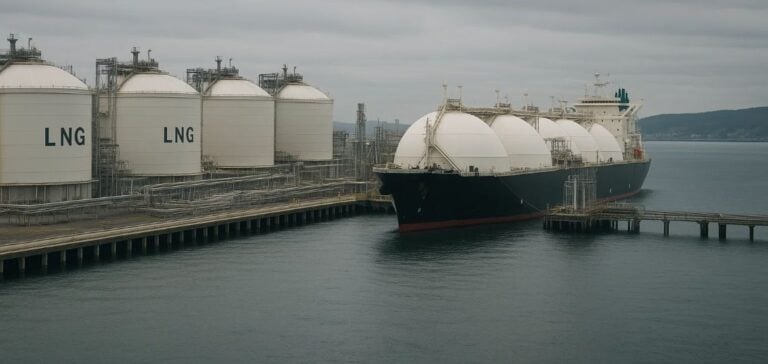The United States Trade Representative (USTR) has announced a significant adjustment to proposed penalties targeting foreign LNG tankers and vehicle carriers operating in the United States. This revision follows an intensive consultation period during which industry stakeholders expressed concerns about the high initial costs envisaged. The modifications primarily impact quotas requiring the use of U.S.-built LNG tankers for transporting liquefied natural gas (LNG), as well as port fees applicable to foreign vehicle carriers. The U.S. government thus aims to support its maritime industry without excessively restricting international trade.
Major easing for LNG exports
The original proposal required U.S. exporters to progressively transport their LNG cargoes using U.S.-built tankers. This mandatory quota, intended to reach 15% of exported volumes by 2047, drew significant industry pushback. In response to these concerns, the USTR has decided to remove the initial threat of suspending export licenses for non-compliance with these quotas. The new, more flexible measure grants exporters increased latitude while preserving overarching objectives of supporting the domestic shipbuilding industry.
Exporting companies, particularly major LNG producers and terminal operators, had warned about potential financial repercussions of overly restrictive regulations. This revised approach directly addresses industry concerns, without entirely abandoning the U.S. government’s intent to strengthen its national maritime fleet. The regulatory framework has now been balanced, prioritizing an approach deemed more acceptable by industry professionals.
Reduction in port fees for vehicle carriers
New measures affecting foreign vehicle carriers, especially Roll-on/Roll-off (Ro-Ro) vessels, also introduce substantial changes. Originally set at $150 per vehicle, the revised tariff has now been lowered to $14 per net ton transported. This significant revision notably reduces costs for international vehicle importers. The decision follows intensive lobbying by major automotive manufacturers, who had raised concerns about the economic impact of the initially proposed fee increases.
Furthermore, vessels participating in the Maritime Security Program (MSP), those transporting government freight, and those operating specifically on routes to the Great Lakes, the Caribbean, or serving U.S. territories, are fully exempt from the new port fees. This exemption aims to protect strategic segments while maintaining economic competitiveness for international vehicle imports.
Additional period for public consultations
The USTR has opened a new public consultation period until July 7, 2025. This initiative allows affected stakeholders to submit comments and proposals to finalize the measures expected by October. This step demonstrates the U.S. government’s commitment to fully incorporating the perspectives of industry professionals impacted by these regulations.
This additional consultation phase will enable U.S. authorities to further refine their approach to achieve a regulatory framework viewed as balanced by all stakeholders. This approach is already drawing significant attention from the energy and automotive sectors, given the financial and logistical implications these new measures could entail for their future operations.






















